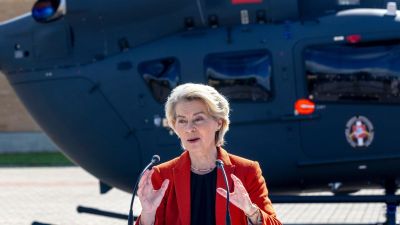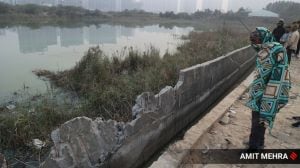After Colombo
Time to begin a strategic conversation about shaping Pakistan8217;s future behaviour.

Prime Minister Manmohan Singh8217;s decision not to make a joint appearance before the press after Saturday8217;s talks with his Pakistani counterpart, Yousuf Raza Gilani, in Colombo was a deliberate political snub. It was meant to demonstrate New Delhi8217;s anger at Islamabad8217;s complicity in the bombing of the Indian embassy in Kabul last month. In the talks described as 8216;frank8217;, 8216;candid8217; and 8216;open8217; 8212; strong words in diplomatic parlance 8212; the PM is said to have laid out India8217;s mounting concerns at the Gilani government8217;s inability to prevent its rogue intelligence agency, the ISI, and the armed forces from undermining the bilateral relationship. India was not alone in targeting Pakistan. In a departure from normal diplomatic practice, Afghan President Hamid Karzai accused Pakistan, in the opening session of the South Asian summit, of harbouring terrorists and providing them 8216;institutional support8217; read the ISI.
The attempt by Manmohan Singh and Karzai to put the ISI in the dock received strong public endorsement from an unexpected quarter 8212; the US. Senior intelligence officials of the Bush administration confirmed to the New York Times that they have evidence of the ISI8217;s role in the attack on the Indian mission in Kabul. For months now, Islamabad has rubbished the claims of New Delhi and Kabul that Pakistan8217;s intelligence agencies were fomenting terror across its eastern and western borders. After the Times story last Friday that complemented the private American dressing-down to the Pakistani establishment in the last few days, Islamabad now has no place to hide. Its usual ploy of demanding concrete evidence was apparently laughed out of court by US President George W. Bush during his meeting with Gilani in Washington last week. Kabul, New Delhi and Washington do not want to compromise their sources of intelligence when they are convinced Islamabad will simply pass it on to the ISI, which in turn alerts the very terrorist groups targeting the three nations.
In stepping up the pressure on Pakistan, the US, Afghanistan and India are acutely conscious that their quarrel is not with the civilian leaders in Islamabad, who may be well-meaning but weak. Their security challenge emanates from the ISI and the army that are now accountable to no one. In order to tilt the balance of power within Pakistan against the ISI and establish the long-overdue civilian dominance over the armed forces, Washington, Kabul and New Delhi must better coordinate their policies and construct a new set of incentives and disincentives for Pakistan. Karzai8217;s visit to New Delhi on Monday provides an opportunity to begin that strategic conversation about shaping Pakistan8217;s future behaviour.
- 01
- 02
- 03
- 04
- 05































